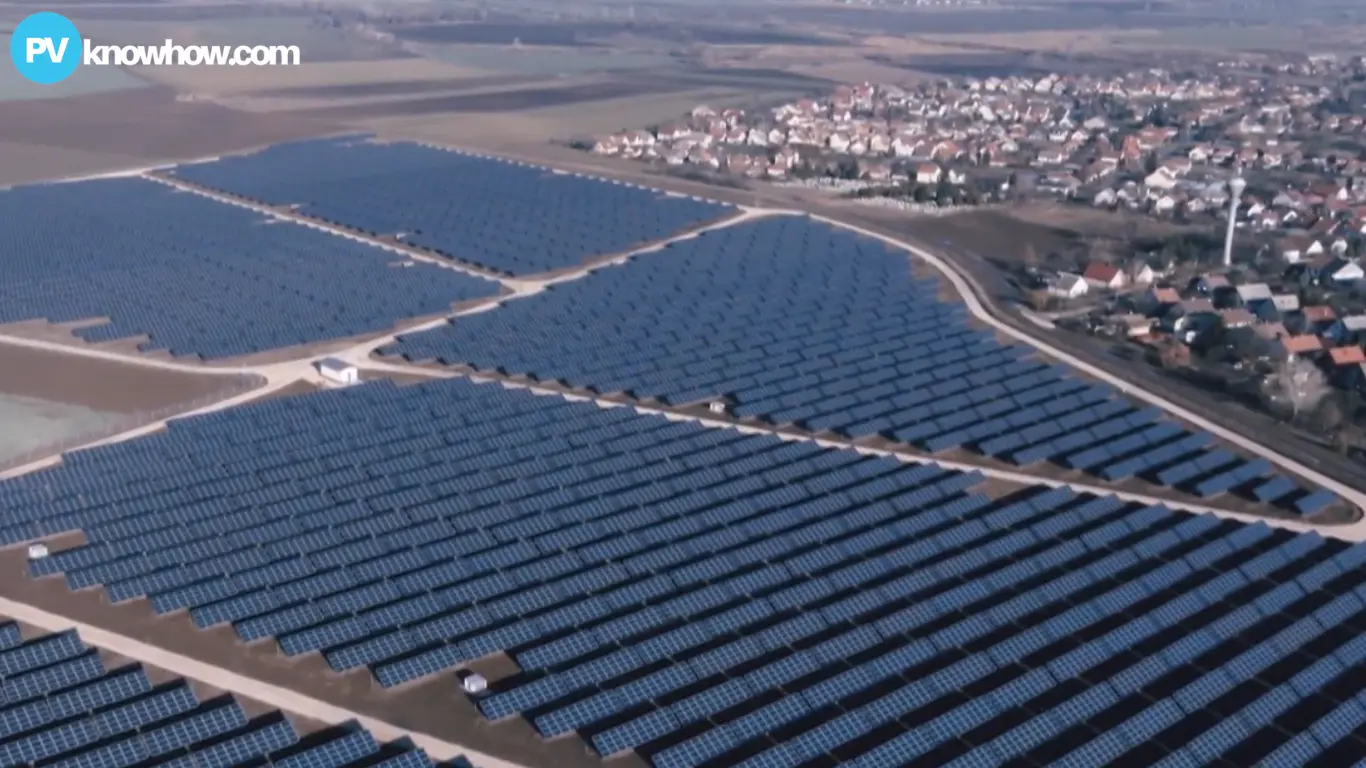Siemens Energy has expanded its Budapest plant by building a new factory, opening a training centre, and installing a solar park. This investment will help the company produce some of the energy needed for its operations.
1.5MW Solar Park
The Minister of Foreign Affairs and Trade, Péter Szijjártó, revealed in Budapest that Siemens Energy — the German giant — has built a new factory, opened a training centre, and established a solar park as part of its investment programme. This project will allow the company to generate part of the energy it requires to operate.

Image: Collected
At a ceremony at the Siemens Energy factory, the minister announced that the German company will manufacture gas turbine combustion heads at its newly built multifunctional plant. Additionally, a dual training centre will be established to train Hungarian specialists in the latest technologies. Furthermore, a 1.5-megawatt solar park has been commissioned as part of the Factory Rescue Program.
According to Hungary Today, this three-part investment programme is valued at HUF 26 billion (EUR 67 million), including government funding of roughly HUF 900 million (EUR 2.3 million). This investment program aligns well with the primary goals of the Hungarian energy strategy, which aims to maximize the production of energy needed for the country's operations.
Impact of Siemens Energy in Hungary
The minister noted that since the government signed a strategic cooperation agreement with Siemens Energy, the company has doubled its revenues in Hungary, increased its workforce by 400 employees, and invested nearly HUF 50 billion (EUR 129.5 million).
He emphasized that Siemens Energy will remain crucial for Hungary's energy supply security. The company — along with the French firm Framatome — won the tender to provide control technology for the new Paks nuclear power plant.
The minister expressed that Hungary's advancements in the nuclear energy sector provide hope that common sense still prevails in international affairs and that it may lead to a return to normal, respectful international cooperation. He emphasized that encouraging this cooperation could help address current global political challenges more effectively if it is based on mutual respect and common sense.
The Paks Project
Péter Szijjártó remarked that we are living in a time of significant threats, and recent crises have demonstrated that nations with strong strategic capabilities, particularly in energy security, are better protected and less vulnerable. He highlighted the importance of having robust energy production capabilities, which is why Hungary is constructing the new Paks nuclear blocks to ensure its energy security with the necessary technical and technological infrastructure.
“The last few years have proved that a country can be tremendously strong if it has the necessary capacities for energy production, which is why we are developing the new Paks blocks,” Szijjártó noted.
Szijjártó also highlighted that the Paks expansion is an international project involving companies from the USA, France, Germany, Austria, and Switzerland, working alongside the Russian prime contractor, Rosatom.
Expansion of Solar Energy in Hungary
Ireland's dedication to a sustainable future is reflected in its extensive support for solar energy, with significant government incentives aimed at making solar installations more affordable for homeowners, businesses, and farmers. The Sustainable Energy Authority of Ireland (SEAI) offers a Solar Electricity Grant, providing up to €2,100 for homeowners installing solar PV panels, thereby helping to increase renewable energy sources in the country.
For non-domestic entities such as businesses, schools, and farms, the NDMG provides funding for larger solar PV systems, with grants potentially reaching up to €162,600 for systems up to 1,000 kWp. Additionally, the Targeted Agricultural Modernisation Scheme (TAMS) supports farmers with grants covering up to 60% of installation costs — capped at €90,000 — thereby encouraging the use of sustainable energy in agriculture.
The Irish government has further committed funds in Budget 2024 to support energy upgrades and solar PV installations, including electricity credits and European funds to assist energy-poverty households.
The application process for these grants requires meeting specific eligibility criteria and submitting applications through the SEAI website. Policy changes such as the 0% VAT rate on domestic solar panel installations, have significantly boosted growth in the sector, thus demonstrating the government's proactive approach to promoting renewable energy adoption.
